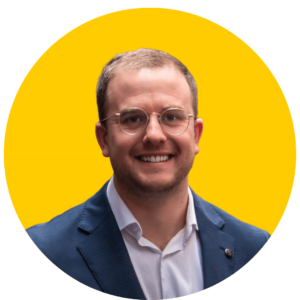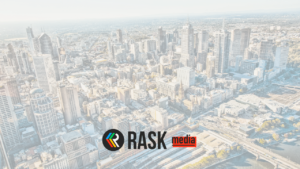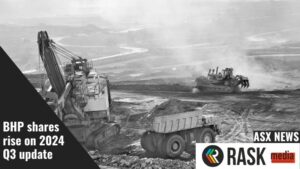This time of year, a lot of Aussies sit back, pick up a paper, or visit Rask Media, looking to get started investing. For those of us who have been doing it for a while, the Holiday season is a great time to take stock of our portfolio and financial strategy.
Often, those who want to get started investing in the stock market have been thinking about it for months, maybe even years. Yet they’ve never had the time to set up a brokerage account or have been caught out “waiting for the market to crash”.
Others figure out how to open a brokerage account, but never fund it.
Then there are those of us who throw $500 or $1,000 at a speccy stock or try to “trade” money that they “don’t need”.
The fact is, the stock market is the single greatest place to build wealth and the best time to start buying assets, like shares, was yesterday. The second-best time is today.
This is why your Super fund is, likely, mostly invested in shares.
Don’t just sit there — own something!
When I was younger, I looked around at the people who were financially successful. The obvious thread that all of them had in the common was that they owned businesses.
They definitely did not work harder, or longer. They weren’t smarter. They didn’t come from money.
They owned something. Specifically, they owned businesses.
When I say “business”, people instinctively assume I’m talking about a private business, like a cafe, plumbing business or a mechanic shop.
I’m not.
Of course these people can do well if their business survives.
However, you don’t need to own and run a small or medium business to be a business owner. Ta-da!
This is what the stock market is for.
Right now, you can buy shares of local favourite Commonwealth Bank of Australia (ASX: CBA), and, presto! You are a business owner.
Alternatively, you could buy shares of something that you use every day, like Apple Inc (NASDAQ: AAPL). Even if you bought one share through your US brokerage account, you will be a shareholder / business owner just like me.
People often say to me:
“Owen, the stock market is a zero sum game. For every buyer, there’s a seller.”
If you are ‘trading a stock’ (or currency, gold, or stamps) I think it’s reasonable to think what you’re doing is a zero sum game. You’ve got to be smarter than someone else.
But let’s imagine you buy a restaurant business for $400,000 and own it for 10 years before selling it for $1.1 million.
If the business was successful when you bought it, while you owned it and when you sold it, you wouldn’t say “it’s a zero sum game”.
The reason is simple, while you owned the business it was making money. It was throwing off dividends every year and reinvesting for growth.
The thing is, most people miss out on the true wealth wonder of the stock market because they are too caught up in trying to time their buying and selling decisions — they forget that good businesses create wealth.
They believe they need to time their trades because good timing creates wealth. They put off buying because “the market is going to crash in 2021, I’ll wait.”
Or, they say (once it has crashed), “the market has fallen, I reckon it’ll keep falling.”
You wouldn’t say those things if you were thinking of buying an actual business.
What I’d buy with $10k
You can join Rask Invest to see which stocks and ETFs I own, or join Rask ETFs to get 4 model portfolios that we designed for every type of investor — you will see how we’d build a lifelong portfolio from scratch. Click here to view our membership options.
However, if I had $10,000 right now, and the ability to stay invested for 20 years, the first purchase I would make would be an ETF, probably the BetaShares Australia 200 ETF (ASX: A200) or Vanguard’s Australian Shares ETF (ASX: VAS). I’d probably put $2,500 of my $10k in that.
Buying something like A200 or VAS spreads your investment across shares in ~200 or ~300 companies, respectively. With one investment you would get exposure to a tiny little bit of Commonwealth Bank, Westpac (ASX: WBC), BHP Group (ASX: BHP), Woolworths Ltd (ASX: WOW), etc.
With the other $7,500 in my portfolio, I’d split it — depending on my risk profile — across a US shares ETF, maybe an emerging markets ETF or managed fund, and then I’d leave some for a few direct shares, like Apple Inc.
At Rask, our belief is that ETFs should form the Core of a portfolio, and then, over time as your behaviour and knowledge improve, you can start buying individual shares to “bolt-on” some “satellite” or “tactical” positions.
In the beginning, maybe the first 1-3 years, you might have 10% – 25% of your portfolio in direct shares (i.e. “tactical” investments), with the majority in ETFs.
After 5 to 10 years of investing, you might start adding 90% of your savings towards direct shares. This is optional, of course, as may you may be happy with kicking it simple in ETFs, managed funds and property forever. That’s okay too. Not everyone wants to be an ‘active’ investor.
The single most important thing for you to do right now is this…
Start.
Start investing. Right now.
Then keep investing. Not just in 2021. Forever.
Don’t ‘buy low and sell high’.
Buy.
Then buy again.
Then buy some more.
Here are the steps involved:
- Fill up your emergency cash fund with at least 6 months of living expenses (don’t touch it).
- Figure out how much you can save to invest for 5-10 years (up to 20% of your income is ideal)
- Automatically transfer the cash to your brokerage account, index fund and/or managed fund provider on payday.
- Invest the money — don’t even try to predict what comes next. Just find the best thing to own that month and invest in it.
- Hold onto your investments.
- Go back to step 3.
Once you get over the belief that ‘shares are like gambling’ (they’re not — they represent ownership of real businesses) and prepare your psychology and finances for a 30% market crash (expect it at least every 10 years), it’s simple to create wealth by investing.
If you want to learn more, here are some of our helpful resources and courses:
- Free course: beginner shares course
- Free course: ETF investing
- Free course: Money & Budgeting – complete guide
- Free course: the complete FIRE course
- Free course: Share valuation course
- Premium course: Value Investor’s Program
- Free tutorial: How to buy US shares from Australia
- Free tutorial: Are share brokerage accounts safe?
Finally, if you want to see our full range of ETF model portfolios — I think they’re perfect for those looking to get started investing — consider joining Rask ETFs to see:
- Our Ethical portfolio – our chosen ESG-focused portfolio
- The Flexi portfolio – make it what you want
- Super-Easy – this one-ETF portfolio is oh-so easy
- The Thematic portfolio – our all-ETF, high-growth/high-risk portfolio
Here’s to investing better in 2021!
Owen
P.S. To get my full (and free) stock report on a small ASX company I own, see below.




